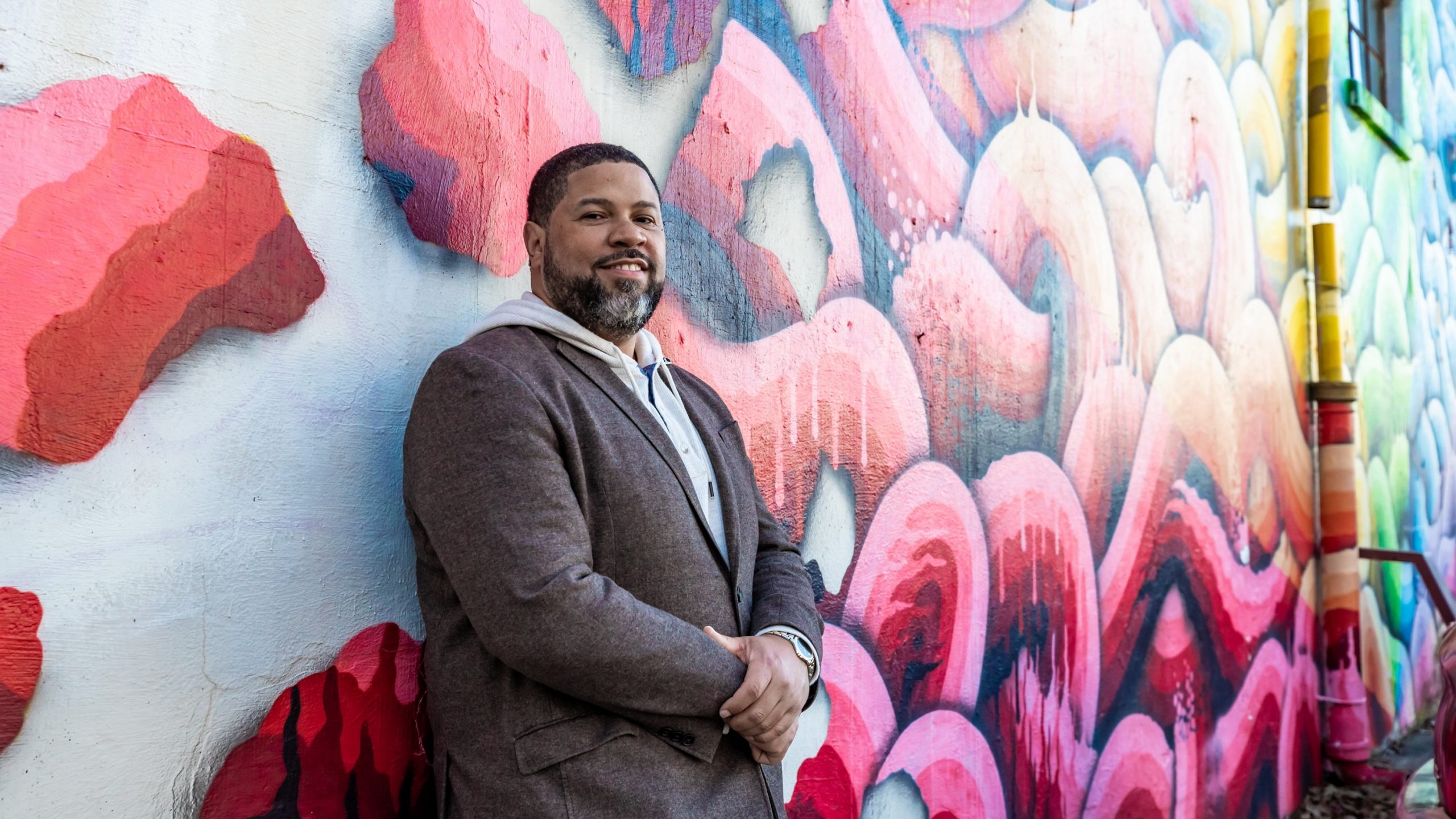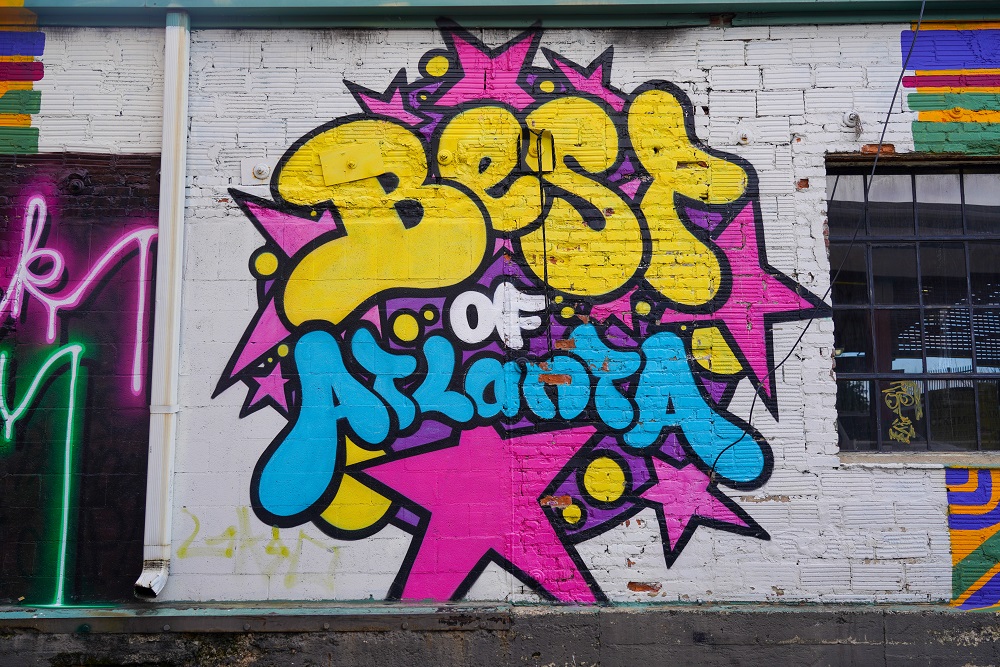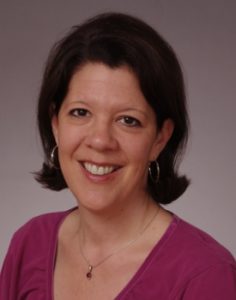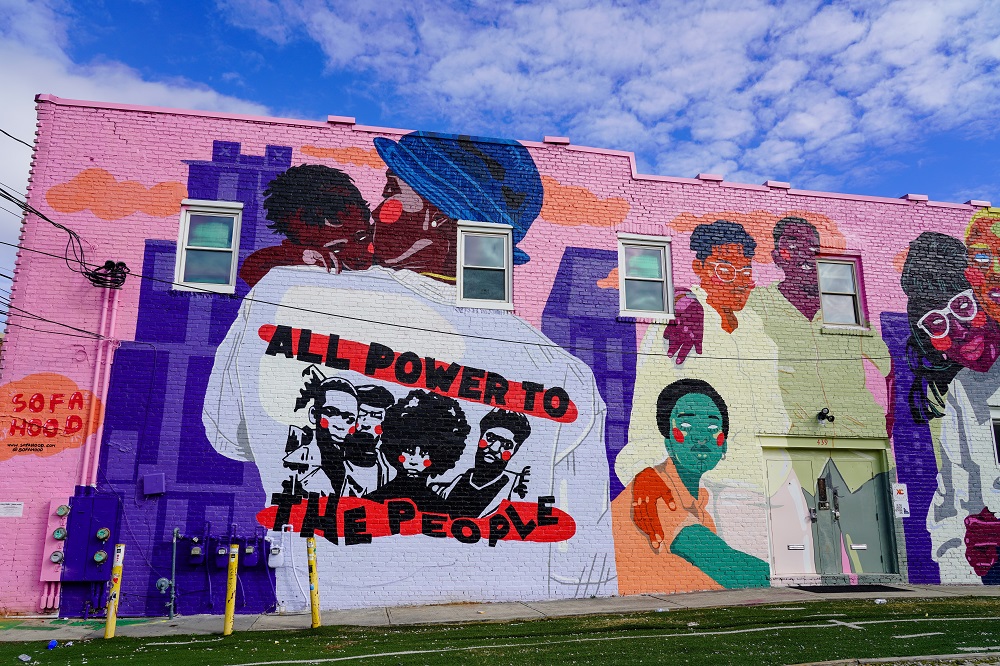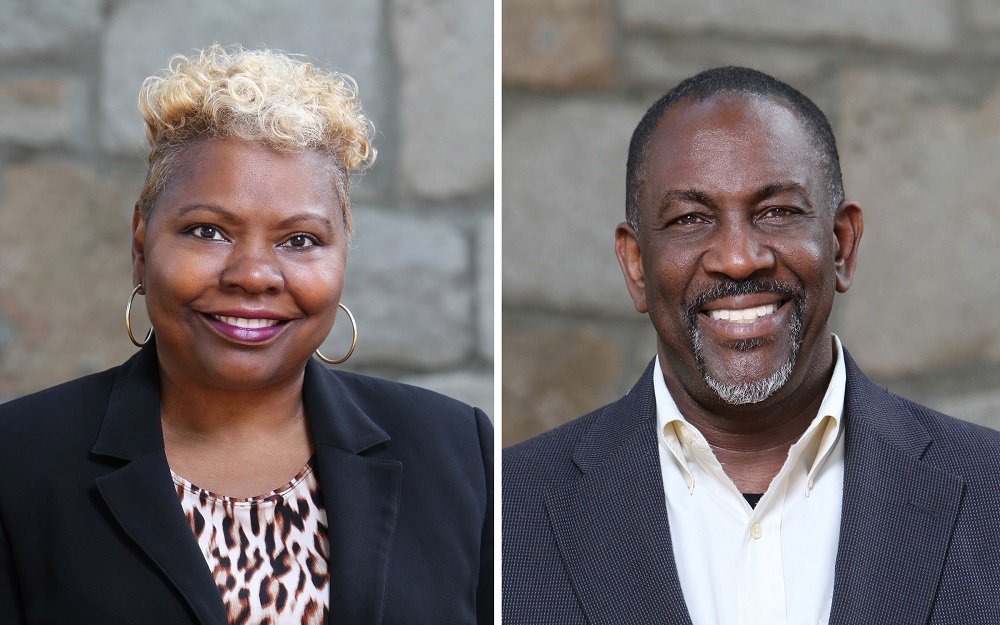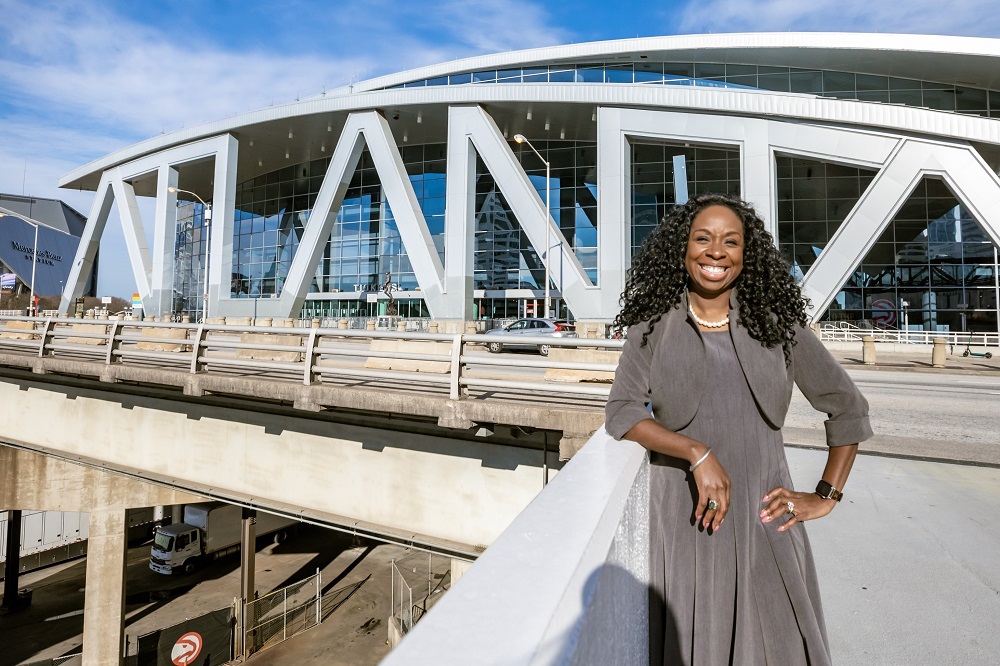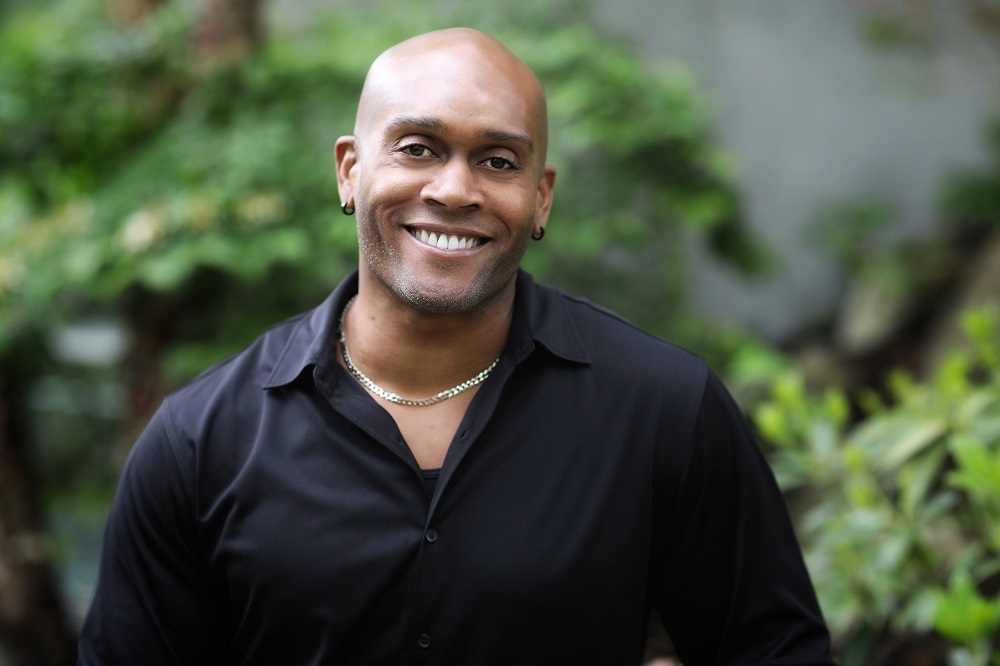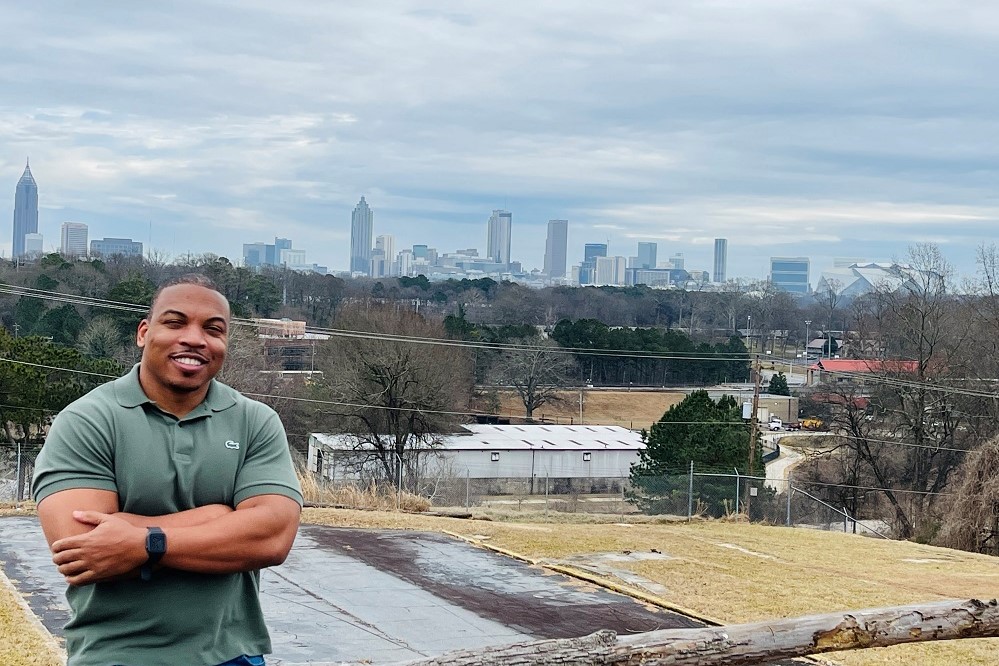As board chairman of the volunteer organization 100 Black Men of Atlanta, Kevin Gooch is on a personal mission to pay it forward. His grandmother, a single caregiver, worked triple shifts washing laundry and mopping restaurants, which taught him resilience. Mentors, who helped him navigate college, law school and work, broadened his path. Now one of Atlanta’s top financial services attorneys, Gooch is enriching young people with educational and career opportunities.
His mission is why he’s excited about Microsoft’s purchase of 90 acres in Atlanta, of which 25% will be dedicated to affordable housing and other key community initiatives. The company also plans to establish its first datacenter region in Georgia. It’s using a community-first approach of listening to local leaders about their goals for housing, STEM education investment and development of a talent pipeline with local public schools, historically Black colleges and universities (HBCUs) and other academic institutions.
“This will transform Atlanta,” says Gooch, a partner at the law firm Holland & Knight. “Atlanta is going to be well positioned in the next 10 to 15 years to be a tech giant in the U.S. That’s huge.”
Among prominent community advocates like Gooch, the reaction to Microsoft’s new investment in the Southern capital is ranging from optimism to prudence as many look forward to learning more. On Thursday, the company formally announced its plans to expand in one of Atlanta’s most economically distressed neighborhoods — all while working closely with community leaders to address concerns about gentrification, income inequality and social justice.
“Technology is the great equalizer,” says Gooch, whose organization, 100 Black Men of Atlanta, provides mentoring, STEM (science, technology, engineering and math) training, robotics, post-secondary tuition assistance and career readiness programs to underserved youths.
“I understand the grit, the strength, the resilience of folks that grew up like me. My goal is to connect that grit to opportunities, because when you bring them together, it’s an unstoppable combination,” he says.
The expansion is planned for Quarry Yards, a former industrial area near Atlanta’s Westside neighborhood of Grove Park. The predominantly African American community has wide, tree-lined streets and century-old bungalows, as well as struggling schools, broken sidewalks and a freight highway notoriously dangerous for pedestrians. It is currently a food desert with no grocery store, pharmacy or bank.
Developers and investors eyeing the historic neighborhood have driven up home prices and property taxes, pushing out many legacy residents.
Debra Edelson, executive director of the Grove Park Foundation, is hopeful Microsoft will help deliver housing the neighborhood needs to curb gentrification. As a longtime affordable housing expert, she knows the issue is complex.
“I have a million questions, because I know how hard it is to truly deliver a permanently affordable unit at a price people can pay,” Edelson says of the neighborhood.
To stabilize and revitalize the once vibrant community, her organization is building 110 units of mixed-income apartments, 80% of which are affordable at 50% to 60% of area median income. It’s developing a plan for a walkable “Main Street” of small businesses and rehabilitating a historic theater. And it raised money with other stakeholders to build a new public charter school connected to a much-needed health clinic, preschool and early learning center.
“The community is seeking a long-term investment in equity and opportunity for the residents of Grove Park,” Edelson says of Microsoft’s presence. “Residents want to stabilize homes, create jobs with livable wages and high-quality housing at a range of income levels, revive its ‘Main Street’ and invest in the neighborhood’s education pipeline.”
Atlanta City Council member Dustin Hillis, whose district includes Quarry Yards and Grove Park, says he’s “cautiously excited” about the announcement. A former intensive care unit nurse, Hillis has worked to improve the area, from installing crosswalks after pedestrian fatalities to developing a plan to mandate a certain percentage of affordable housing for developers in the Westside.
He’s encouraged by community discussions with the company, including a meeting last year with Microsoft President Brad Smith and key government, community and academic leaders.
“That meant a lot to me and the residents — that the company is engaging with the community and sending the head honcho to Atlanta to meet with interested parties,” says Hillis.
He welcomes the prospect of new jobs in his district and a grocery store in Grove Park and wants to know more.
“I know myself and the neighborhood are waiting to see more concrete details before we get too excited,” he says.
The early community meetings have also gone a long way for Gail and John Mapp Jr., a married couple of 40 years with deep roots in the Westside. The Mapps, who met at Georgia Tech in the ‘70s, remember when Grove Park bustled with young families and mom-and-pop shops — Gail’s mother ran a popular paint-your-own-ceramics store there and John’s father owned a construction business that John now owns.
Over the years, the couple watched shops close, older people get priced out and young people move away and never return. They’ve seen outside developers come and go with empty promises and little respect. They appreciate Microsoft reaching out.
“The community is looking for a real partnership,” says Gail, buoyed by the company’s willingness to listen. “If everything is done well, I think it will enhance the community.”
Born and raised in the community, the couple have long worked to rebuild energy in the Westside through their advocacy organization Northwest Business Association. They’re brimming with ideas on how to help entrepreneurs, minority-owned businesses and construction workers, especially with the economic ecosystem that Microsoft will bring.
“This could be a crown jewel for Grove Park,” John says.
Citywide, Microsoft chose Atlanta as its first American city for a global initiative to close the digital skills gap, an early signal that the company is investing in the city for the “right reasons,” says TechBridge CEO Nicole Armstrong.
The investment includes a partnership with TechBridge, an Atlanta-based nonprofit that provides students with 16 weeks of free digital skills training, in-demand job certifications and career coaches. With Goodwill of North Georgia, the organization also provides wrap-around case management to help students deal with evictions, food insecurity, legal justice cases and other challenges. Microsoft provided laptops, curriculum and funding for instructors and mentors.
“The access to resources and materials helps us deliver the dream of providing a very clear pathway to a middle-wage job for our vulnerable, underserved and underrepresented students,” says Armstrong.
She understands the gentrification concerns in the Westside, where many of her students live, and can’t be sure exactly how it will play out.
“But what I do know is that Microsoft has kept its word to me,” Armstrong says. “I’ve been in the technology space for 25-plus years. I’ve had a lot of big companies say, ‘Hey, we’re going to do this for you,’ and not deliver. Microsoft delivered.”
For Billy Anders, Microsoft corporate vice president for Azure, the expansion in Atlanta will be a recognition of the engineering talent that already exists in the area and an opportunity to diversify talent in technology.
He and his team have been foundational to the expansion, since noticing years ago that many of their engineers were from Atlanta. They supported the trend with local workspace, more recruiting and groundwork for Atlantic Yards, a new facility opening this summer in West Midtown to support up to 1,500 employees.
At the same time, Anders says he is often the only Black engineer in the room, even after 22 years at Microsoft and while leading a global division of 1,200 employees. He has long advocated to remedy that fact.
He’s a champion of stronger outreach to Atlanta’s HBCUs, including Spelman College, Morehouse College and Clark Atlanta University — smaller schools traditionally not on the company’s recruiting radar.
“Our Microsoft employees in Atlanta should reflect the Atlanta community,” says Anders, himself an HBCU grad of Southern University in Baton Rouge, Louisiana. “I want to create an empowering environment where African Americans and all people, particularly underrepresented minorities and women, who come to Microsoft, come into tech, can do their best work, grow and be fully supported. And not be the only person that looks like them in the room.”
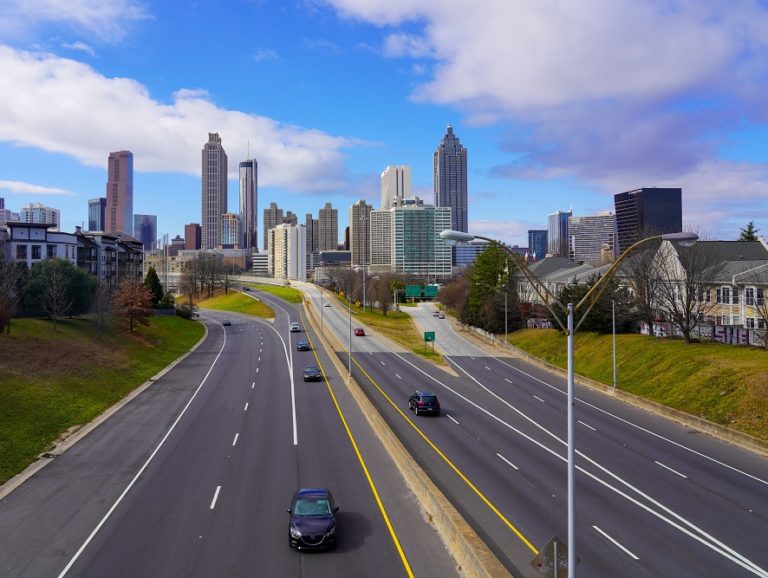
Atlanta skyline (photo by Nicole Mejias)
Atlanta skyline (photo by Nicole Mejias)Widening the recruiting lens isn’t just the right thing to do, he notes; it leads to employees with diverse perspectives who make the company better.
Case in point: Cornelius Parker, an enthusiastic employee and Microsoft’s first engineering hire in Atlanta two years ago.
Parker grew up outside the city near the airport and took a winding road in life, in which he tried to become a pro football player, left college to join the Navy and finished his degree later in information systems. He then joined the Air Force Reserve and got a job as a “cable dog” installing fiber optic equipment. He climbed the corporate ladder and earned an MBA on the weekends. One evening, he got a call from Microsoft that changed his trajectory.
“My path to Microsoft in many ways was nontraditional, so I’m a huge proponent of nontraditional hiring pipelines,” says Parker, an Azure engineer and site lead of the company’s Midtown office. “Not everybody is going to go to a top-tier engineering university.”
When he toured Quarry Yards, the name didn’t ring a bell, but he immediately recognized the location. His mom had managed a large, now-demolished apartment complex there, where Parker used to mow the lawn as a teenager with her landscaping crew.
“For me to be a site lead at Microsoft, and now we’re investing in an area where I used to cut the grass, I was filled with so much pride and joy,” he says. “I always wanted to give back to the community, and this is a beacon of hope and opportunity for a community that has been overlooked for so long.”
Parker is thrilled to be part of building relationships with schools, creating job opportunities for others and solidifying Atlanta as a tech hub. He wants to serve his community, where he loves the cultural diversity, history, energy and Southern hospitality.
“We are asking the community to be a part of this journey to transform generations,” he says. “That’s what’s most exciting for me.”
Lead image: Kevin Gooch (photo by DV Photo Video)


